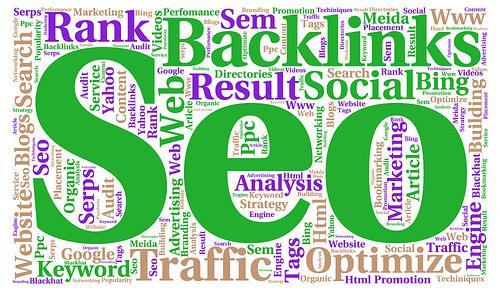SEO, SEA, SEM, CTR, we are bombarded by all of these abbreviations. Even our SEO specialists find it occasionally difficult to work with all these abbreviations. Over the years, people have stopped using certain technical terms fully, migrating towards using only abbreviations. Now, you might want to optimize your website but you have no idea what all of these abbreviations mean. The help you further with this, we are explaining a certain number of abbreviations in this article.
SEO abbreviations explained
In SEO hundreds of abbreviations are used. You will never have to use most of these, besides the seven most important that we will explain. If we don’t explain some of these abbreviations it’s fine because we will soon put our knowledge to use, and show you where you can find all of these abbreviations, including extensive explanations! But, for now, the top 7 SEO abbreviations.
SEO
Let’s deal with the obvious first. Even though almost everyone knows this already, SEO stands for Search Engine Optimization. It is the art of optimizing websites for search engines like Google and Bing. Through SEO you ensure that your website will appear in the organic results of search engines like Google for highly searched terms. SEO combined with SEA results in SEM, and it helps you increase your SERP!
SEA
SEA stands for search engine advertising. This refers to the fee required for placing ads above the organic Google search results. The advantage of SEA is that you are going to be placed at the top guaranteed. The disadvantage is that you will have to pay an X amount of money whenever someone clicks on your website’s link, something called CPC or PPC. You have to speak with Google Qualified Professional in advance and define your monthly budget for advertising. If this monthly budget is used all, you will be removed from the paid results. When you merge SEA with SEO, the result is SEM.
SEM
SEM stands for Search Engine Marketing. It is a combination between Search Engine Optimization (SEO) and Search Engine Advertising (SEA), which together will be used to increase the visibility of your website. Even if SEO is becoming increasingly popular, by far the most money is still being spent on SEA. Entrepreneurs are willing to spend more money on advertising, enabling them to obtain a guaranteed top position in the Google results. As mentioned above, you will be removed from the paid search results if your budget runs out. In the long term SEO also provides a lower PPC / CPC.
SERP
SERP stands for Search Engine Results Page. These are the results that you see on Google when you type in a search term. SERP shows all of the organic search results, as well as some ads around them. The first position in search results is seen as the holy grail when it comes to SEO, for the following reason. Out of all clicks within Google, 91% of them come from the first page. On the first page, the CTR (Click Through Rate) is as follows:
- Position 1: 32.5 %
- Position 2: 17.6 %
- Position 3: 11.4 %
- Position 4: 8.1 %
- Position 5: 6.1 %
- Position 6: 4.4 %
- Position 7: 3.5 %
- Position 8: 3.1 %
- Position 9: 2.6 %
- Position 10: 2.4 %
As you can see, the first position receives more than 30% of all the clicks for that particular searching term. Therefore, it’s not surprising that each organization is competing to be first in the Google SERP for their relevant searching term. It introduces a high CTR.
CTR
CTR stands for Click Through Rate. CTR is generally the number of impressions a link gets, set against the number of times it is clicked. Especially within SEA, CTR is very often used to measure the effectiveness of an ad. CTR is calculated as it follows:
CTR = (Clicks / Impressions) x 100
Depending on niche, CTR can vary widely so, it’s difficult to say what is the right CTR for you. If you still want to set up a Google AdWords campaign, then get yourself well informed first about the numbers that are relevant to your niche. Only in this way you can run a successful AdWords campaign and have a good ROI.
ROI
ROI is your Return On Investment. It is the cost of an investment, compared to the money that the investment returned. Where ROI for decades was used – and was difficult to measure by many companies – the term with the advent of online marketing has made a re-entry. The advantage of the Internet is that everything can be measured. The formula is as follows:
ROI = Return on investment / Cost of investment
Conclusion from the SEO abbreviations
All in all, these abbreviations can help many people have a broader understanding of SEO. Yet there are many other abbreviations. Fortunately, our base of knowledge will soon come online. This doesn’t only mean that SEO abbreviations will be explained further but, also the meaning of many HTML tags. If you still need a professional to optimize your website, please contact us and ask for our services.
